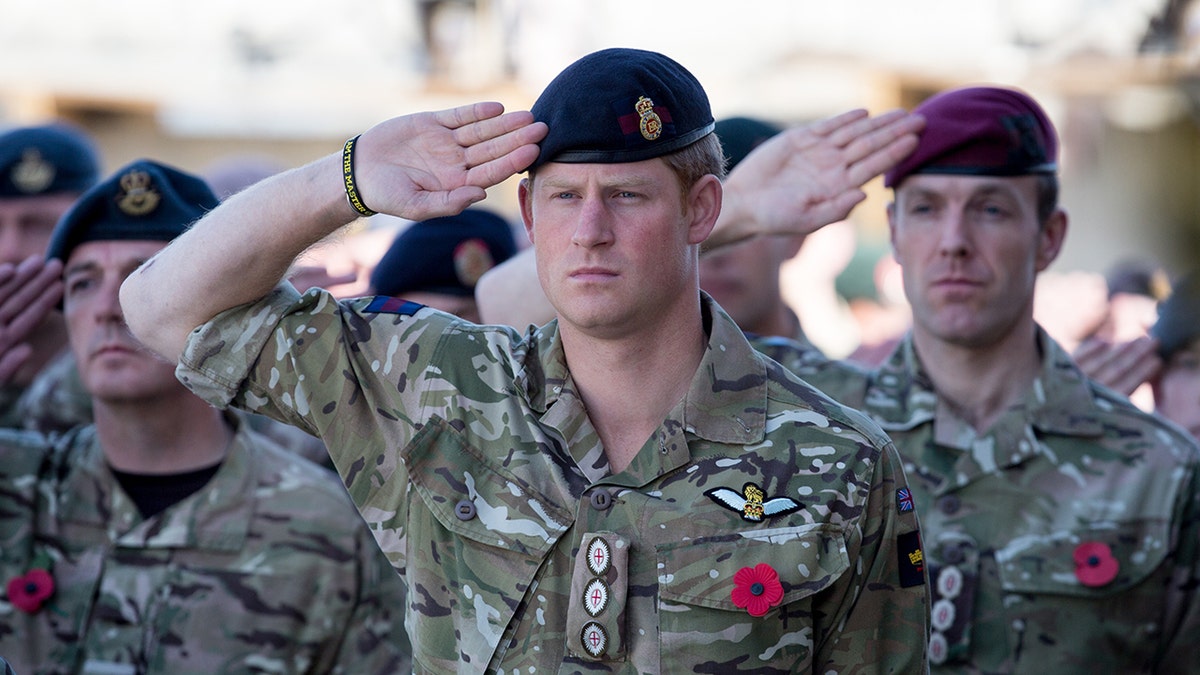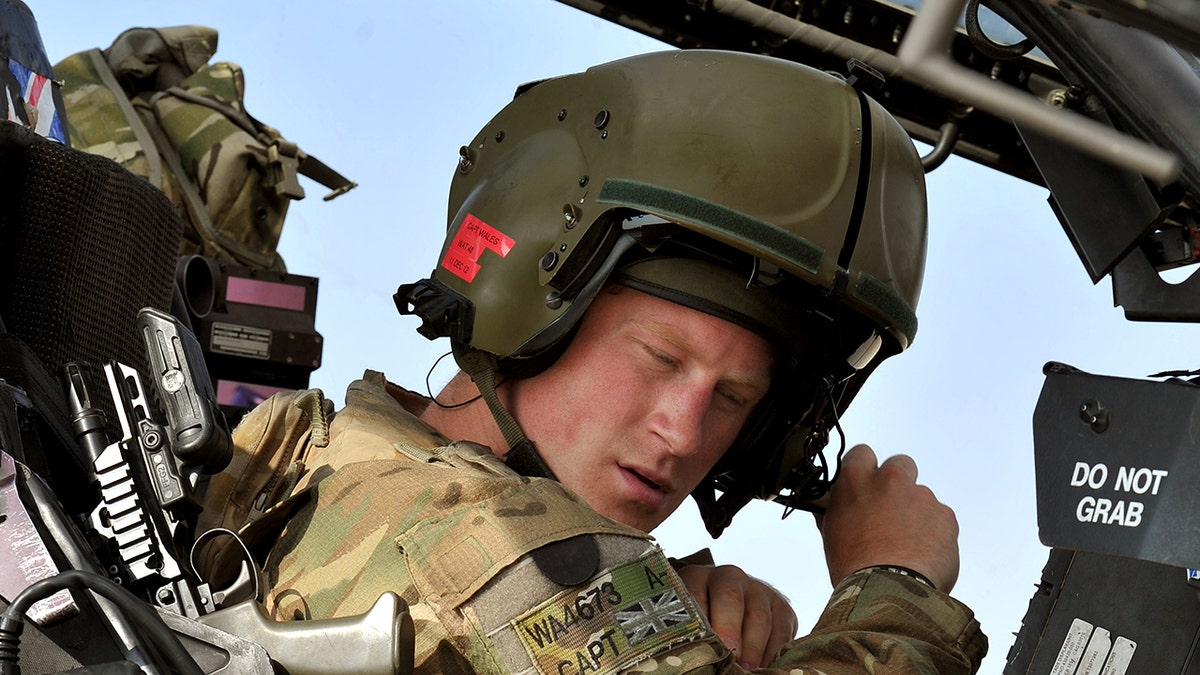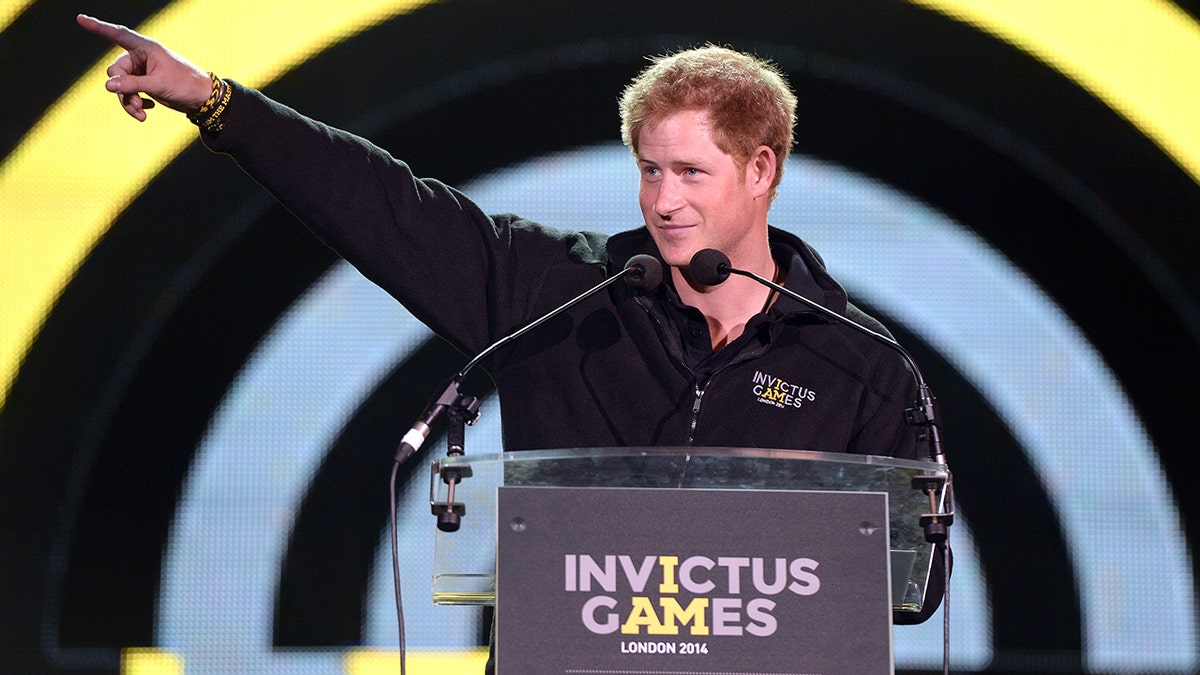Prince Harry surprises fan at 'Heart of Invictus' screening
Prince Harry surprised fans during a screening for his new Netflix docuseries, "Heart of Invictus."
Prince Harry revealed that when he returned from deployment to Afghanistan, he didn’t have the proper "support structure" to take care of his mental health.
"The biggest struggle for me was no one around me could really help," the Duke of Sussex said in the second episode of his new Netflix docuseries "Heart of Invictus," about the sporting competition he founded in 2014 for wounded service members.
He continued, "I didn’t have that support structure, that network or that expert advice to identify what was actually going on with me."
The 38-year-old admitted that the struggles he dealt with after he returned from his deployment stemmed from the pain of losing his mother when he was 12.
MEGHAN MARKLE TAKING A 'HUGE RISK IN DISTANCING HERSELF FROM PRINCE HARRY IN CAREER REBRAND: EXPERT

Prince Harry said he didn't have the support he needed when he returned from Afghanistan. (Matt Cardy/Getty Images)
An expert said earlier in the episode that service members who struggle more with deployment-related PTSD usually have other issues from their life that they haven’t resolved.
PRINCE HARRY CHEERS ON WOUNDED VETS AT WARRIOR GAMES FOLLOWING UK COURT APPEARANCE
"There was an unraveling and the trigger to me was actually returning from Afghanistan, but the stuff that was coming up was from the age of – 1997, from the age of 12," Harry said. "Losing my mum at such a young age, the trauma that I had, I was never really aware of. It wasn’t discussed. I didn’t really talk about it. And I’ve suppressed it like most youngsters would have done."
Harry’s mother Princess Diana was killed in 1997 in a car crash in Paris while being pursued by paparazzi. She was 36 years old.
But he said once he returned from his deployment "it all came fizzing out, I was bouncing off the walls. Like, what is going on here? I’m now feeling everything as opposed to being numb."

Prince Harry deployed to Afghanistan twice. ( John Stillwell - WPA Pool/Getty Images)
CLICK HERE TO SIGN UP FOR THE ENTERTAINMENT NEWSLETTER
The royal added that sometimes the first time people consider therapy is when "you’re lying on the floor in the fetal position probably wishing that you dealt with some of this stuff previously. That’s what I really want to change" with the Invictus Games.
The docuseries, which was released on Netflix on Wednesday, followers a group of wounded service members as they discuss their lives and struggles while preparing to compete in the 2022 games.

Prince Harry founded the Invictus Games in 2014. (Samir Hussein/WireImage)
Harry’s admissions come against the backdrop of his strained relationship with his family, especially his father King Charles III and his brother Prince William, which he discussed in his first Netflix docuseries "Harry & Meghan" and his memoir "Spare."
In January, he said he hadn’t spoken to William or Charles in "a while" after he and Meghan Markle left in the U.K. for California in 2020.
Earlier this week, Harry surprised a group of theatergoers in San Diego by appearing at an advanced screening of the Invictus series.

Meghan Markle and Prince Harry at the 2017 Invictus Games. (Karwai Tang/WireImage)
CLICK HERE TO GET THE FOX NEWS APP
"You all serve, whether you’re the ones who wear the uniform, or whether you’re the spouse, or whether you’re the child who gets moved around the country," the duke told the invited audience, according to People magazine.
Harry was deployed to Afghanistan twice: first in 2007 to 2008 as a forward air controller and a second time from 2012 to 2013 as an Apache helicopter pilot, according to the royal family website.














































